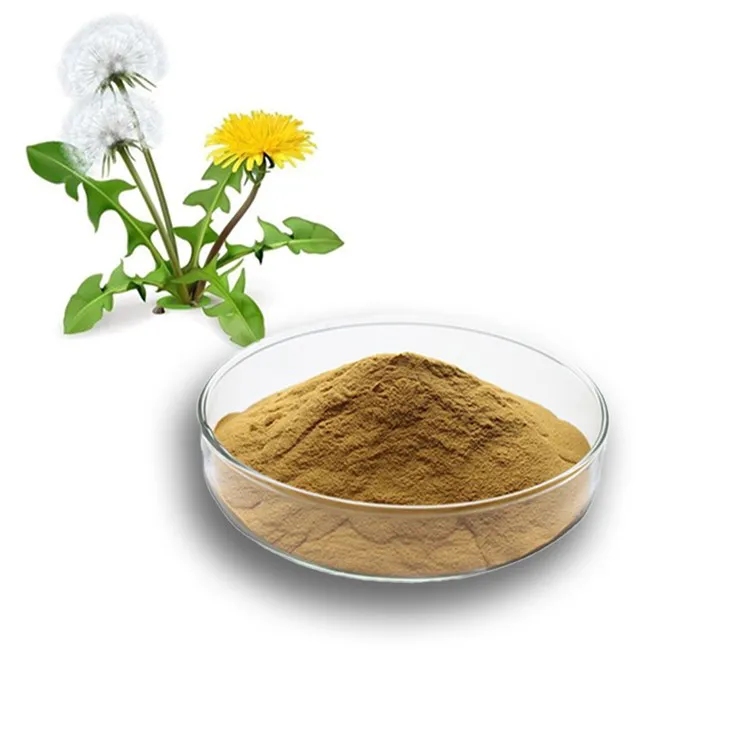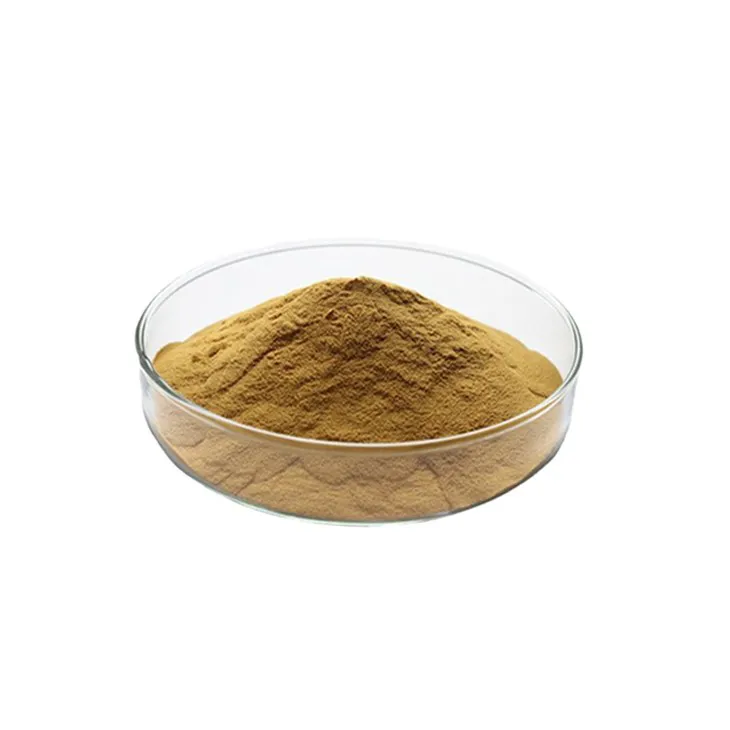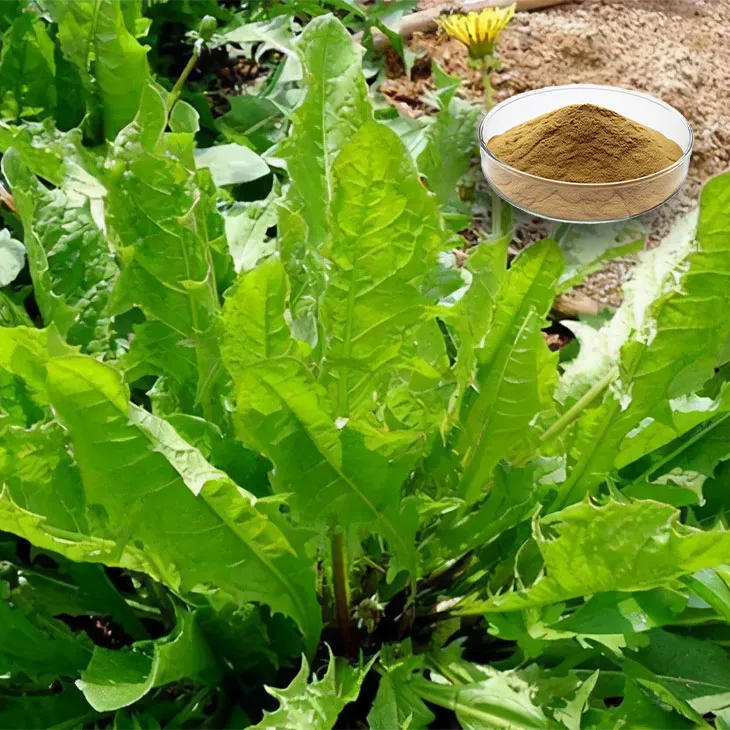- 0086-571-85302990
- sales@greenskybio.com
Dandelion Leaf Extract: Benefits, Uses and Possible Side Effects
2024-11-13

1. Introduction
Dandelion (Taraxacum officinale) is a common plant that has been used for centuries in traditional medicine. The Dandelion Leaf Extract, in particular, is rich in various nutrients and bioactive compounds. It has gained increasing attention in recent years due to its potential health - promoting properties. This article aims to provide a comprehensive overview of the benefits, uses, and possible side effects of Dandelion Leaf Extract.

2. Nutritional Composition of Dandelion Leaf Extract
Dandelion leaf extract contains a wide range of nutrients. Vitamins such as vitamin A, C, and K are present in significant amounts. Vitamin A is important for vision, immune function, and skin health. Vitamin C is a powerful antioxidant that helps protect cells from damage and boosts the immune system. Vitamin K plays a crucial role in blood clotting.
It also contains minerals like potassium, calcium, and iron. Potassium is essential for maintaining proper heart function and regulating blood pressure. Calcium is well - known for its role in bone health, while iron is necessary for the formation of red blood cells and oxygen transport in the body.
In addition, dandelion leaf extract contains various bioactive compounds including flavonoids, phenolic acids, and terpenoids. These compounds are responsible for many of its medicinal properties.

3. Health Benefits of Dandelion Leaf Extract
3.1. Diuretic Properties
Dandelion leaf extract has natural diuretic effects. It helps increase urine production, which can be beneficial for several reasons. By promoting the excretion of excess water and salt from the body, it may help in reducing edema (swelling) in the body, especially in conditions such as fluid retention in the legs or ankles. This diuretic action can also potentially help in managing blood pressure by reducing the volume of fluid in the circulatory system.
3.2. Digestive Health
The extract can have a positive impact on digestive health. It stimulates the production of bile in the liver, which is important for the digestion and absorption of fats. This can be helpful for people with indigestion or problems related to fat metabolism. Dandelion leaf extract also contains dietary fiber, which can aid in promoting regular bowel movements, preventing constipation, and maintaining a healthy digestive tract.
3.3. Anti - inflammatory Effects
Thanks to its bioactive compounds, dandelion leaf extract exhibits anti - inflammatory properties. Chronic inflammation is associated with many diseases, including heart disease, diabetes, and arthritis. By reducing inflammation in the body, the extract may potentially help in preventing or managing these conditions. It can also be beneficial for reducing inflammation in the skin, such as in cases of acne or eczema.
3.4. Antioxidant Activity
As mentioned earlier, dandelion leaf extract contains vitamins and bioactive compounds with antioxidant properties. These antioxidants scavenge free radicals in the body, which are unstable molecules that can cause damage to cells and DNA. By neutralizing free radicals, the extract helps protect the body from oxidative stress, which is linked to aging, cancer, and various chronic diseases.
3.5. Liver Health
Dandelion leaf extract has been traditionally used to support liver health. It helps in detoxifying the liver by promoting the elimination of toxins. It also supports the regeneration of liver cells, which can be beneficial for people with liver diseases or those who have been exposed to toxins. Some studies suggest that it may improve liver function tests, although more research is needed in this area.

4. Practical Uses of Dandelion Leaf Extract
4.1. In Herbal Remedies
Dandelion leaf extract is a common ingredient in herbal remedies. It can be used alone or in combination with other herbs to treat various ailments. For example, it can be made into a tea to relieve digestive problems or as a tincture for its diuretic effects. Herbalists often recommend it for general detoxification and to improve overall well - being.
4.2. In Skincare Products
Due to its anti - inflammatory and antioxidant properties, dandelion leaf extract is finding its way into skincare products. It can be used in creams, lotions, and serums to help reduce inflammation in the skin, improve skin tone, and protect against environmental damage. It may also be beneficial for treating skin conditions such as acne, rosacea, and wrinkles.
4.3. In Dietary Supplements
Dandelion leaf extract is available in the form of dietary supplements. These supplements are often used by people who want to take advantage of its health benefits. However, it is important to choose high - quality supplements from reliable sources and follow the recommended dosage.

5. Possible Side Effects of Dandelion Leaf Extract
5.1. Allergic Reactions
Some people may be allergic to dandelion. Allergic reactions can range from mild symptoms such as skin rashes, itching, and hives to more severe reactions like difficulty breathing and anaphylaxis. If you have a known allergy to plants in the Asteraceae family (which dandelion belongs to), you should avoid using dandelion leaf extract.
5.2. Interaction with Medications
Dandelion leaf extract may interact with certain medications. For example, its diuretic effect may enhance the action of other diuretic drugs, which could lead to excessive fluid loss and electrolyte imbalances. It may also interact with medications that are metabolized by the liver, potentially affecting their efficacy or increasing the risk of side effects. Therefore, if you are taking any medications, it is important to consult your doctor before using dandelion leaf extract.
5.3. Gastrointestinal Disturbances
In some cases, dandelion leaf extract may cause gastrointestinal disturbances. This can include symptoms such as nausea, vomiting, diarrhea, or abdominal cramps. These side effects are more likely to occur if the extract is taken in large amounts or if a person has a sensitive stomach.
6. Conclusion
Dandelion leaf extract has a wide range of potential health benefits, from its diuretic and digestive - promoting properties to its anti - inflammatory and antioxidant effects. It has various practical uses in herbal remedies, skincare, and dietary supplements. However, it is important to be aware of the possible side effects, especially allergic reactions, interactions with medications, and gastrointestinal disturbances. As with any natural remedy, it is advisable to consult a healthcare professional before using dandelion leaf extract, especially if you have underlying health conditions or are taking medications.
FAQ:
What are the main benefits of Dandelion Leaf Extract?
Dandelion Leaf Extract has several benefits. It is rich in vitamins (such as vitamins A, C, and K) and minerals (like potassium). It may act as a diuretic, helping the body to get rid of excess water. It also has antioxidant properties which can combat free radicals in the body, potentially reducing the risk of chronic diseases. Additionally, it may support digestion as it can stimulate the production of bile.
How can Dandelion Leaf Extract be used?
It can be used in various ways. One common way is in the form of herbal tea. Dried dandelion leaves can be steeped in hot water to make a tea. It can also be found in some dietary supplements. In traditional medicine, it has been used topically for skin conditions in the form of poultices. Some people may also use it in cooking, adding fresh dandelion leaves to salads or other dishes for its nutritional value.
Are there any side effects of Dandelion Leaf Extract?
Yes, there can be side effects. Since it has diuretic properties, excessive use may lead to dehydration if adequate fluid intake is not maintained. Some people may be allergic to dandelion, which can cause skin rashes, itching, or respiratory problems. Also, it may interact with certain medications, such as blood thinners and diuretics, potentially increasing the risk of adverse effects. So, it is important to consult a healthcare provider before using it, especially if you are on medications or have underlying health conditions.
Can Dandelion Leaf Extract help with weight loss?
There is some indication that it may aid in weight loss. Its diuretic effect can cause a temporary reduction in water weight. Also, it may help improve digestion, which could potentially have an impact on overall metabolism. However, it is not a magic solution for weight loss. A balanced diet and regular exercise are still the cornerstones of a healthy weight - loss plan. And, as with any supplement, it should be used with caution.
Is Dandelion Leaf Extract safe for everyone?
No, it is not safe for everyone. Pregnant or breastfeeding women should avoid it as there is not enough research to determine its safety in these situations. People with kidney problems should also be cautious as its diuretic effect may put additional strain on the kidneys. And, as mentioned before, those with allergies to dandelion or those taking medications that may interact with it should not use it without medical advice.
Related literature
- The Health Benefits of Dandelion Leaf Extract: A Comprehensive Review"
- "Dandelion Leaf Extract: Therapeutic Uses and Potential Risks"
- "Exploring the Nutritional and Medicinal Properties of Dandelion Leaf Extract"
- ▶ Hesperidin
- ▶ Citrus Bioflavonoids
- ▶ Plant Extract
- ▶ lycopene
- ▶ Diosmin
- ▶ Grape seed extract
- ▶ Sea buckthorn Juice Powder
- ▶ Fruit Juice Powder
- ▶ Hops Extract
- ▶ Artichoke Extract
- ▶ Mushroom extract
- ▶ Astaxanthin
- ▶ Green Tea Extract
- ▶ Curcumin
- ▶ Horse Chestnut Extract
- ▶ Other Product
- ▶ Boswellia Serrata Extract
- ▶ Resveratrol
- ▶ Marigold Extract
- ▶ Grape Leaf Extract
- ▶ New Product
- ▶ Aminolevulinic acid
- ▶ Cranberry Extract
- ▶ Red Yeast Rice
- ▶ Red Wine Extract
-
Black Rice Extract
2024-11-13
-
Phellodendron Extract
2024-11-13
-
Sugarcane Extract
2024-11-13
-
Pueraria Lobata Extract
2024-11-13
-
Saffron Extract Powder
2024-11-13
-
Red Wine Extract
2024-11-13
-
Curcumin
2024-11-13
-
Mangosteen extract powder
2024-11-13
-
Saw Palmetto Extract
2024-11-13
-
Grapefruit Seed Extract Powder
2024-11-13





















